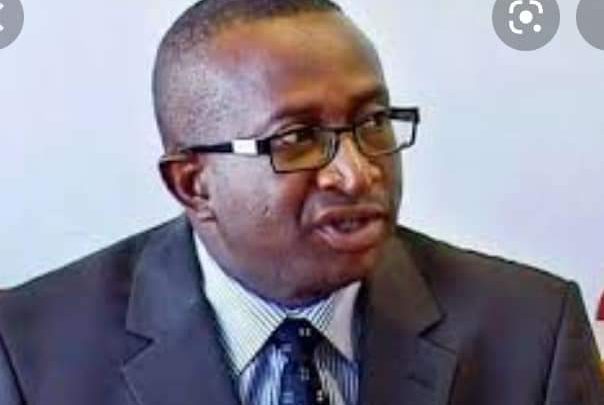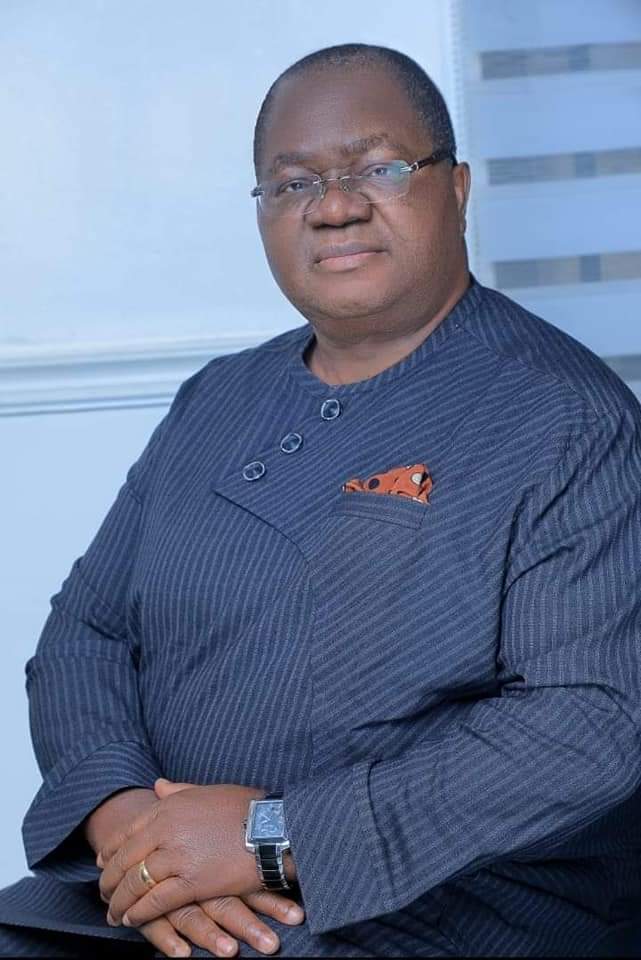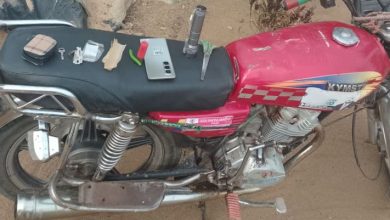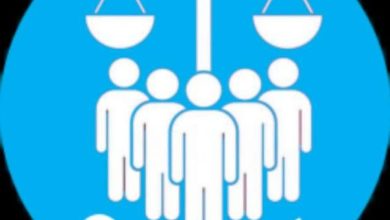
I must confess that this book is a big surprise to me. The demands of our legislative schedules, the exertions required for a growing institution, the senate in particular, and the National Assembly in general and the rough and tumble of our politics leaves little or no time for intellectual engagement of this enduring nature. Moreso, for one, with an exerting schedule as former Chairman Senate Committee on Finance in the last Senate and Chairman, Committee on Senate Services in the current Senate. It is even more so for one who has been perhaps the “most distracted” Senator because he has spent more time in court defending his every mandate.
That inspite of all the melee, the enigmatic Senator Effiong Bob seemingly easy going but with a keen eye on history was able to find time and energy to write this book which will certainly be a reference material, speaks volume of the character of the man. He is clearly a man of vision, history and determination. This is as evident as can be from his own life story which is left for another day.

In my time in the senate, this is the second time, the first being “The Attorney- General” co-authored by Senator T.U. Wada of blessed memory, and the book under review, are being authored by senators. Simple as this gesture is, it is most significant.
The book has 212 pages and eight short chapters. Its language is uncomplicated, lucid, narrative, jargon free and illustrative. The print is clean and clear. Reading it is like read a story book.
The book tries to situate legislature within the context of our current democracy, the longest so far in our Post-Colonial history. It brings out the challenges the legislature has faced in the cause of its growth and the reader is left to reach a conclusion as to whether the independence of the legislature, is in our circumstances, fact or fiction. The only way to reach a judgement is to read the book which in any case is a must-read. I therefore expect all to reach a conclusion one way or the other.
Chapter one of the book looks at the legislature in a democracy in conceptual terms. The second chapter deals with the constitutional evolution of the legislature since our independence in 1960. Chapter three is a comparative analysis of the concept and practice of legislative autonomy and separation of powers in Nigeria from 1960 to 1999 – the beginning of our current democratic episode.
Read Also: New Wave of Covid-19: Senator Effiong Bob Calls for Observation Of Safety Protocols
Chapter four takes a look at the legislature at the state level while chapter five examines constitutional practice at the National Assembly. Chapter six examines the issues of executive interference in the impeachment procedures in the state houses of assembly.
Chapter seven focuses on legislative independence and law making while chapter eight takes a look at our rough journey to legislative independence.
This is also a postscript which reveals the still evolving saga of the recent constitutional challenges pose by the ill-health of late President Umaru Musa Yar’Adua. Given the vast information that is imperative because of the level of development of our legislature, the book can relatively be described as a small book in terms of size but certainly not in terms of its utility and seminal contributions to the desperately needed literature on our legislature, its practice, and development.
Since it was agreed that all of us must read the book, we are all going to be reviewers of the book. Rather than dwell therefore on the book, I will instead talk a bit on some of the issues raised directly or consequentially by the book. To do otherwise will result in this review being as long as the book which is a temptation that must be resisted more so as I had promised the author that this is going to be a short review.
The book has dwelt sufficiently, adroitly and deftly with the functions of the legislature: law-making, appropriation, confirmation power and oversight. One had hoped that a little more would have been said about the legislature’s power of advocacy which is one function that is almost always forgotten. However, I believe that the author will address this either in a subsequent edition of this book or in another which should come soon since he is in the mood to write.
One issue that was dealt with extensively in the book but requires some attention is the evolution of the legislature since independence. The first military incursion into our political life was in January 1966. The military remained in power until 1979 (13years). Therefore, we had a democratic “interregnum” from 1979 to January 1984 (4 years) when the military struck again and remained in power until 1999 (15 years). Between 1992 and 1993 we had the oddity of a military President and elected governors in the states. Essentially, it was a military era.
Read Also: Unbiased Collaborative Efforts Will Restore Nigeria’s Peace – Gov Emmanuel
A common feature of the military interventions is the immediate abrogation of the legislatures. Thus the legislature, which is an arm of government, did not exist in the 29 years of military rule. While the executive and the judiciary grew and adapted to their political environment, the legislature did not exist not to talk of growing.
Significantly, Nigerians got used to living without a legislature which ironically represents democracy because a government without a legislature is totalitarian, and no matter how benign, is certainly not democratic.
This partly, explains the impatience and seeming hostility of the public to the legislature which is perceived as a needless money wasting institution.
I used the term ‘partly’ advisedly as the legislature has since 1999 certainly made its mistakes, some needless and others from its stage of development or learning curve. Nevertheless, the impatience of the public, which at the same time concedes its preference for democracy is antithetical to the growth of the institution. I do not mean constructive criticism which is of course needed and helpful to the strength of any institution. I mean brazen mindless, fixated hostility.
I will use two cases to illustrate:
• Allegations of mind boggling allowances said to be earned by senators
• Purchase of bullet-proof car for a former senate president
Every public office has overheads for its running and the overheads are never ascribed by the public to its holder as allowances except in the case of the legislature. Why? In the last Senate, a bullet proof car at the cost of N40million was approved for a Senate President and it became a media controversy and the subject of several editorials. One may ask, how many bullet proof cars are in the Presidency and the judiciary? Why is only one car in the Senate the subject of such frenzied interest?
My belief is that the public hostility towards the legislature has the potential of making the institution timid and this will be to the detriment of Nigeria. A timid legislature will be a disaster to our democracy.
Finally, this book would not have been possible if the author did not have the experience, as it is written from his experiences in the Senate and commitment to his legislative functions. Presidential constitutions all over the world impose term limits on the executive and in some cases, retirement ages for members of the legislature. This has been the tradition for as long as one can remember. The reasons cannot be elaborated upon now for reasons of time and space but can be summarized. Legislators are like wine, they mature with age. That is why in the older democracies like the United States, we had a Senator Robert Byrd (54years) and Edward Kennedy (48years) and many more who are over thirty years in the Senate. Consequently, if three serving US Senators lose their seats in any given election year, it is a major political upheaval.
In our own experience, today we have only 5 serving senators with 11 years’ experience in the senate. In other words, in the last eight years, we lost 104 senators and Nigerians did not even notice. This huge turnover is inimical to the growth of the institution as institutional memory is fast eroded and this is to the detriment ultimately of the taxpayer, at whose expense these legislators are trained, and our democracy.
Read Also: Senate Moves To Recover N16trn AMCON Loans
This trend is replicated in virtually all our legislatures. In essence, instead of building on our aggregate capacity, and memories, we are receding to where we started in 1999. If the trend is not arrested, the legislature will suffer stunted growth and would be unable to play its robust role. The irony is the same public will blame it for its inability to play its assigned role effectively.
Senator Bob through “The Independence of the Legislature: Matters Arising” establishes that he still has a lot to offer Nigerians through the Senate. I hope his constituency recognizes this. He is to be congratulated for demonstrating to the world that there is intellectual content in the Senate and for challenging the rest of us to further substantiate this. Thus, its further demonstrated by the resourcefulness and ingenuity adopted by the Senate through its “Doctrine of Necessity” to resolve the ill health crisis of President Yar’Adua. That was arguably the Senate’s finest moment as it most demonstrably played the essential role of any Senate to a polity stabilizing it.
…Being text by Sen Victor Ndoma Egba, OFR (SAN) while reviewing Senator Effiong Bob’s “Independence of the Legislature: Matters Arising” in Abuja, Sept. 2010.




